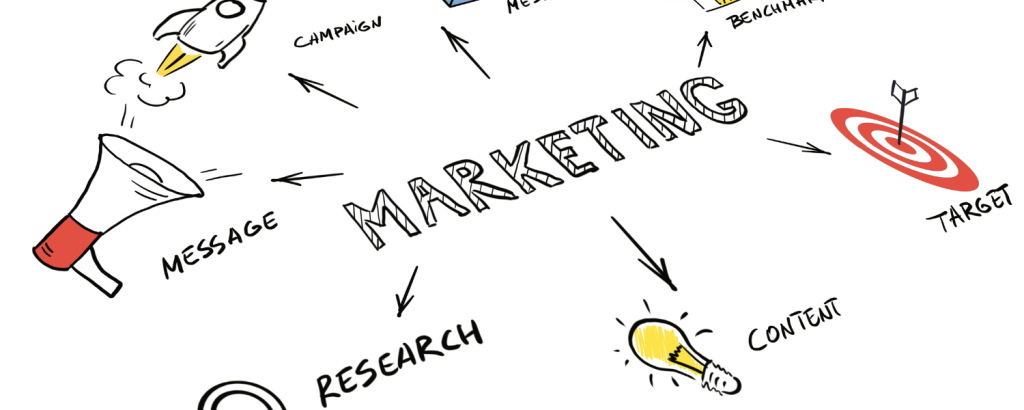
User Review
( votes)Running a successful online store is more than just having an attractive website and driving traffic to it. To truly succeed, you need to delve deep into the realm of marketing psychology—the study of human consumer behavior and the decision-making processes that drive it.
Understanding the psychological triggers that influence consumers can be the key to converting visitors into loyal customers. In this comprehensive guide, we’ll explore six proven strategies that leverage marketing psychology to boost your online store sales in 2024 and beyond.

1-Reciprocity: The Art of Giving and Receiving
The principle of reciprocity is a fundamental aspect of human psychology that dictates that when someone gives, there’s an innate urge to give back. As an online retailer, you can harness this psychological trigger to your advantage by offering something of value to your customers. One classic example of this is offering free gifts with purchases, a tactic that is often employed by beauty brands like Anima Mundi Apothecary, which includes free samples of other products with orders.
Furthermore, content marketing is another valuable tool that allows you to provide potential buyers with useful and informative content, creating a sense of reciprocity. By offering valuable insights, tips, and information related to your products or industry, you not only establish yourself as an authority in your niche but also create goodwill among your audience. This goodwill can translate into increased trust and brand loyalty.
Surprises and delights also fall under the umbrella of reciprocity. Unexpected freebies or exclusive discounts for loyal customers not only encourage customer retention but also introduce them to new products they might not have considered otherwise. By showing your customers that you appreciate their business, you enhance their overall shopping experience, making them more likely to return and make additional purchases.
2-Social Proof: Building Trust and Credibility
In today’s digital age, social proof is an essential component of successful online marketing. People are more likely to trust and buy from a brand that others have already endorsed. Social proof takes various forms, and as an online store owner, you can leverage it to build trust and credibility with your potential customers.
One effective way to incorporate social proof into your online store is by showcasing customer reviews and testimonials on your website. Make sure to include genuine reviews, both positive and negative, as authenticity is key. Consumers are more likely to trust reviews that appear unbiased and reflect a range of experiences with your products or services. Highlighting popular products and displaying what others are interested in can also serve as powerful psychological triggers. When potential customers see that a particular product is trending or in high demand, it piques their interest and encourages them to explore further.
Influencer marketing is another strategy that falls under the realm of social proof. Partnering with influencers or celebrities who align with your brand can be a highly effective way to reach a broader audience and gain credibility. For example, HELM Boots featuring Liz Lambert in their boots not only showcases the product but also adds a desirable sheen to the brand. When consumers see a respected figure endorsing your products, it can significantly influence their purchasing decisions.

3-Scarcity: Creating Urgency for Increased Sales
Scarcity is a psychological trigger that taps into the fear of missing out (FOMO). It’s the belief that if something is scarce or in limited supply, it must be valuable. As an online store owner, you can use scarcity marketing to motivate customers to act swiftly and make a purchase.
One common tactic is to create limited-time sales or promotions. For instance, offering a discount that expires within a certain time frame can create a sense of urgency, compelling customers to take action before they miss out on the deal. Another approach is to announce that a particular product is about to go out of stock or that there are only a few items left. This encourages customers to make a decision quickly, as the fear of missing out on the product can be a powerful motivator.
Additionally, offering exclusive or seasonal products can also leverage the principle of scarcity. When customers know that a product is only available for a limited time or during a specific season, they may be more inclined to purchase it immediately, fearing it won’t be available later.
It’s crucial to provide clear and transparent information about scarcity to your customers. Clearly state when a sale or promotion will end, and if a product is low in stock, offer information about potential restocking dates. This transparent approach prevents frustration and builds trust with your customers, as they know you’re not using scarcity as a deceptive tactic but as a genuine incentive.
4-Pricing Psychology: Influencing Perceived Value
Pricing psychology is a complex field that involves understanding how consumers perceive the value of a product in relation to its price. It’s not just about setting the right price; it’s about influencing how potential customers perceive that price.
One effective strategy in pricing psychology is product bundling, which involves grouping related products together and offering them at a slightly reduced price compared to purchasing each item individually. This not only increases the perceived value of the bundle but also encourages customers to make a purchase decision. For example, Prolux Cleaners might bundle a vacuum cleaner with a set of cleaning supplies, giving customers the impression that they are getting a deal by purchasing both items together.
Price comparisons can also be a powerful tool in pricing psychology. Showcasing price comparisons, both against competitors and within your own product range, can sway potential buyers in your favor. When customers see that your product offers better value for the price compared to similar offerings, they are more likely to choose your product. However, it’s essential to ensure that these comparisons are accurate and that you are not misleading your customers.
Additionally, consider using pricing strategies like tiered pricing, where you offer multiple options at different price points. This allows customers to choose the option that best fits their budget and needs, making them feel more in control of their purchasing decisions.
5-Loss Aversion: Minimizing Risk for Maximum Gain
Loss aversion is a psychological principle that suggests that people tend to fear losses more than they desire gains of the same magnitude. To leverage this psychological trigger, it’s essential to identify specific pain points that your product or service addresses and highlight the gains that customers can achieve by using it.
One effective way to reduce perceived risk and encourage purchases is by offering free samples or trials. Allowing customers to experience your product firsthand helps them overcome the fear of making a costly mistake. For example, Pourri effectively uses loss aversion by addressing the pain point of pet odor and presenting their product, Pet-Pourri, as the solution. By offering free samples or trials, they let customers see the immediate benefits of their product and reduce the perceived risk of purchase.
Another strategy is to offer strong guarantees, such as a money-back guarantee or a satisfaction guarantee. This reassures customers that if they are not completely satisfied with their purchase, they can get their money back or receive a replacement. This decreases the perceived risk associated with buying from your online store and can be a powerful motivator for hesitant customers.

6-Commitment and Consistency: Fostering Brand Loyalty
Encouraging small commitments from your customers can lay the foundation for long-term brand loyalty. The principle of commitment and consistency suggests that people are more likely to follow through on a larger commitment after making a smaller one. As an online store owner, you can use this psychological trigger to build a loyal customer base.
One common way to implement this strategy is by encouraging customers to sign up for newsletters or subscribe to your email list. By taking this initial step, customers are expressing a level of interest in your brand and products. Once they have committed to receiving your emails, you can use email marketing to nurture these leads, provide them with valuable content, and promote your products over time. Eventually, this can lead to increased sales as customers become more familiar with your brand and offerings.
Another example of commitment and consistency in action is the “Home Try-On” program offered by Warby Parker. This program allows customers to select a few pairs of eyeglasses to try on at home before making a purchase commitment. By providing this low-risk opportunity for customers to engage with their products, Warby Parker increases the likelihood of future purchases. Similarly, brands like Zappos and REI have earned customer loyalty by implementing easy return policies, reducing the friction for customers when making a purchase.
Consistency in branding and messaging is crucial to fostering brand loyalty. Ensure that your brand identity remains consistent across all channels, from your website to your social media profiles to your packaging. When customers encounter a consistent and reliable brand, they are more likely to trust and continue doing business with you.
Conclusion
In the world of online retail, mastering marketing psychology is the key to elevating your online store sales in 2024 and beyond. These six powerful strategies—reciprocity, social proof, scarcity, pricing psychology, loss aversion, commitment, and consistency—provide you with the tools to understand and influence consumer behavior.
By integrating these strategies into your online store, you’ll not only enhance the customer experience but also see a significant boost in sales. Remember that authenticity and consistency in your brand are paramount. Stay true to your brand identity, prioritize transparency, and watch as your business flourishes in the competitive e-commerce landscape. Don’t miss out on the opportunity to master the art of marketing psychology and take your online store to new heights in 2024 and beyond.







